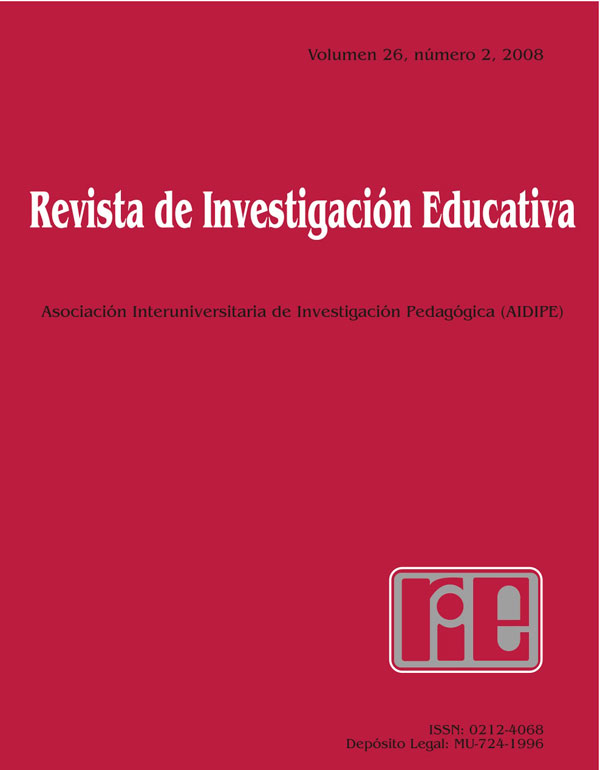Los amigos: espacio educativo, implicaciones y poder
Abstract
This article points towards the analysis of friends as elements that have repercussions on drug-consumption (alcohol, tobacco and cannabis), within the scheme of a nation-wide research carried out between 2001 and 2004. The objetives we search for here are: to study and determine the factors that influence consumption; the motivation for contacting substances; the initial consumption situations and the social representations of drugs in relation to equals/peers. The random sample consists of subjects from 12 to 26 years old, who were applied 1030 questionaries and made 88 carefully detailed interviews. The results definitely show that peers set themselves up as main factors of influence on consumption (alcohol 83,4%, tobacco 80,9%, cannabis 91,2%). In a similar manner, the situations that brought about contacts with substances were due to presence of equals (alcohol 46,7%, tobacco 67%, cannabis 70,8%) and their participation in leisure activities such as “marcha” or “botellón”. The outstanding motivations refer to curiosity, entertainment, group’s habits and imitation of friends in consumption; finally, the peers’ social representation gets evident through a shared belief where drug takes the role of mediator in interpersonal relationship.Downloads
-
Abstract725
-
PDF (Español (España))595
The articles and scientific documents published in RIE abide the following conditions:
1. The Servicio de Publicaciones de la Universidad de Murcia (the publisher) has the property rights (copyright) of all the documents published and allows the reuse under the user’s license indicated in point 2.
2. All documents are published in the digital edition of RIE under a Creative Commons Reconocimiento-NoComercial-SinObraDerivada 4.0 Internacional. (legal document) license. These documents can be copied, used, distributed, communicated and explained publicly if: i) the author(s) and its original source of publishing (magazine, publisher and URL of the document) are cited; ii) it is not used for commercial purpose; iii) the existence and the specifications about this license are mentioned.
3. Auto-archive’s conditions. The authors are allowed and encouraged to digitally distribute the pre-print versions (a version before evaluation) and/or post-print (a version that it is already evaluated and accepted to its publication). This promotes circulation and distribution earlier and can increase the citations and significance within the academic community.










